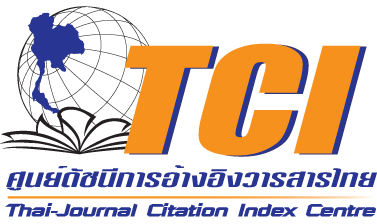Fostering Morality in accordance with the St Teresa Way for Students at St Teresa International University
Keywords:
Fostering Morality, Student Morality according to the St Teresa Way, Graduate Characteristics according to the St Teresa wayAbstract
This mixed-method study aimed to examine how morality was fostered according to the St Teresa way, as well as the moral characteristics of students and graduates at St Teresa International University.
The research was conducted in three phases. The first two phases involved qualitative methods, including document analysis, focus groups, participant observation, and in-depth interviews. The third phase employed a quantitative approach using a researcher-designed questionnaire. The data were analyzed using mean scores.
The study's findings revealed that: 1) Three elements made up the morality of the St Teresa way as practiced by the students at St Teresa International University: Peace, Love-Kindness, and Public Consciousness. 2) Fostering morality in accordance with the St Teresa way was accomplished through two stages: the design phase, which focused on developing meaningful morality, and the implementation phase, which focused on attaining the expected learning outcomes (ELO) and developing the desired characteristics of stakeholders.
3) Among first-year to fourth-year students from the academic years 2015–2024, the morality level in accordance with the St Teresa way had a high average value with a tendency to continually increase. The degree of graduate characteristics that stakeholders desired from the 2020–2024 academic years also had a high average value and tended to rise steadily.
References
Bautista, D. M. (2016). Students’ Views on Morality: A Case of a Philippine Higher Educational Institution Institution. International Journal of Multidisciplinary Approach and Studies, 3(6), 95-105.
______. (2018). The Level of Morality and Religiosity of Students in a Philippine Academic Institution: The Basis for the Core Values Formation. International Journal of Research-Granthaalayah, 6(1), 219-239.
Chuenboon, A., Saengdararat, C., Kitcharoen, A., Pongprasertsin, S., Sitthi-amorn, C. (2020). Students Characteristics in Higher Educational Institution according to the Identities of Catholic Education. Saengtham College Journal, 12(1), 164-181.
Kitcharoen, S. (2021). Characteristics according to The Catholic Education Identities of Sangtham College Students. Retrieved June 11, 2022, from https://mmm.ru.ac.th/MMM/IS/twin92/6214155501.pdf
Khumlek, U., Pannavajiro, W., Butcharee, K. (2020). The Development of Moral and Ethical Virtues of the Students of Mahamakut Buddhtst University: Lanna Campus. Panya Journal, 27(1), 69-81.
Lamb, R. (2020). St Thérèse of Lisieux: A Doctor of the Church for Our Times. Retrieved June 11, 2022, from https://www.gla.ac.uk/media/Media_766519_smxx.pdf
Loyola, L. (2022). Understanding Holistic Development and Wellness: Experiences and Perspectives of Filipino Student Leaders. Journal of Research Initiatives, 6(1), 1-20.
Office of Planning and Policy. (2009). Master Plan, Strategy Development of St Teresa International College 2010-2024. Nakhon Nayok: Planning and Research Division.
Oracion, E. G., and Madrigal, D. V. (2020). Catholic Identity and Spiritual Well-Being of Students in a Philippine Catholic University. Recoletos Multidisciplinary Research Journal, December, 47-60.
Osathanugrh, N. (2006). A Framework for Developing Moral Principles and Ethics among The Thai Higher Education Students following the Discourse by His Majesty the King Bhumipol. Bangkok: Thailand National Defense College.
Shah, E. (2018). Professional Ethics and Values Education in Higher Education. International Journal of Social Impact, 3(4), 55-61.
Shumeiko, T., Ismagulova, G., Balzhanova, A., Shalgimbekova, A., Baikenova, R. (2015). Moral Education of Students of Pedagogical Higher Educational Institution. Mediterranean Journal of Social Sciences, 6(5 S1), 62-68.
Sriboonthai, S., Untaweesin, A., Intrarak, C. (2022). Development of Promoting Moral and Ethical Model for Students in the Christian University of Thailand. Journal of Humanities and Social Science: Rajapruk University, 8(2), 296-313.
Theerawit, P. (2018). Promoting Morals and Ethics among University Students in the 21st Century. Journal of Southern Technology, 11(1), 31-39.
Vitz, P. C., and Lynch, C. P. (2007). Theresa of Lisieux from the Perspective of Attachment Theory and Separation Anxiety. The International Journal for the Psychology of Religion, 17(1), 61-80.







